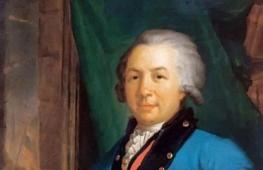Macy's admissions office opening hours. Moscow State University of Economics, Statistics and Informatics (MESI)
UK is the best place to study in English. And Scotland is one of the best options. Learning English in Scotland involves constant communication with native speakers. These are teachers and local residents. Schools offer quality programs for those who are going to move to this country or want to study. Learning a language in Scotland is one of the most effective options.
English courses in Scotland will help to understand English even for those who do not know it at all, special programs have been developed for beginners. You don't have to worry about understanding the information, because Russian-speaking teachers can help with this.
Language learning in Scotland involves familiarization with the classic version of British English. This means that your pronunciation will be clear and correct. English courses in Scotland will help you be more successful at work, study, and improve your speech when communicating with foreigners. The only thing you need to take care of is applying for a visa and choosing a school with the right program. And they will help you with this LogosStudyGroup !
English language training in Scotland is carried out according to specially designed programs and time-tested methods. There are directions with different intensity and duration. The main ones are:
- English for beginners ( beginners ). The program allows you to learn English from scratch, even if the language practice is completely absent.
- Business course. You can learn English in Scotland on your own, when at work you constantly need to deal with foreign partners and documentation in English. You can send a whole group of employees for advanced training.
- Exam preparation program. School of English in Scotland contributes to the preparation of applicants for entrance exams. Tasks for the test are being worked out IELTS if you want to study in the UK, USA, Canada and other countries. The programs are also good for students.
- Intensive English. Language classes in Scotland in intensive form- this is an opportunity to quickly "pump" in English, start speaking more confidently, gain a lot of knowledge.
School of English in Scotland will be useful not only for those who learn the basics of the language. Russian teachers also often need such courses. This is a worthy advanced training, upon completion of training a certificate is issued. It is especially useful for private teachers. Studying English in Scotland, you can adopt many effective methods that will be practiced when teaching Russian students.
Choose the right school
Choosing a school is quite difficult. You can learn the language in Scotland anywhere. There are decent options in Edinburgh, Glasgow, Stirling and other cities. Company LogosStudyGroup for a long time provides an opportunity to easily go to good school. We know all the details and will help with paperwork. We give advice and select the best option.
How much do the courses cost? It all depends on the specific school and program. For those who want to study English in Scotland, the cost of a 2-week course will be around £600. The price is also affected by the included (if possible) meals and accommodation.
Would you like to know English at a more advanced level? It is better to do it in the UK, in his homeland. And Scotland is a great choice!
There are several reasons.
Unique nature. High giant mountains, lakes, untouched forests, endless fields and cliffs, from which a picturesque view of the sea opens, amaze with their beauty to the core.
Mild climate. There are no sudden weather changes in Scotland, so foreigners feel quite comfortable here.
Higher level of hospitality. The Scots are very friendly people. This is manifested in the attention of teachers to students, the care of curators about children and the attitude of ordinary citizens towards foreigners. They are ready to reveal all the best facets of their country to visitors.
Special atmosphere. For those who prefer peaceful tranquility and serene solitude, Scotland suits the best. Residents were able to preserve here a unique national flavor and identity. Ancient castles and palaces, unusual streets create an unrealistically fabulous atmosphere.
English courses in Scotland for students and adults
Basic. It is aimed at working out the 4 main language aspects - listening, grammar, reading and colloquial speech. According to the intensity of classes, two types of courses are distinguished - Vacation and General English. The first involves 20 English lessons per week, the second - 27.
Intensive. Includes 35 lessons per week. Eight of them are aimed at developing special skills. It could be learning English for business or politics.
Preparation for exams. Upon completion of such a course, students successfully pass the FCE, CAE and CPE tests. Training lasts at least 10 weeks.
Studying on courses in Scotland for children
Vacation programs in the country are available for kids aged 8 to 17. The standard course of study includes 20 English lessons per week. The program "Medieval Scotland" also provides an acquaintance with the history and traditions of the country.
Scotland is the most independent country in the United Kingdom of Great Britain. With a rich domestic history, wonderful nature and hospitable local people, Scotland attracts visitors from the farthest corners of the world. Main distinctive features of this country are Scottish national clothes - a checkered kilt, national musical instrument- bagpipes, Scotch whiskey, amazing old castles and endless fields and pastures covered with a picturesque heather carpet. And the elusive Nessie from Loch Ness has already become a national treasure.
Helpful information
Scotland is included in the list of countries of the United Kingdom of Great Britain, and to visit this country you need to get a British visa. In order to visit Scotland for the purpose of studying, you must have student visa. Depending on the duration of your study, you will be given either a short-term or long stay visa. The processing time is 15 days from the date of submission of documents to the embassy (there may be delays in processing depending on the season). Registration for the submission of documents takes about a week.
Scotland has a quiet and peaceful life, but still be careful. Comply with local laws and community regulations. Due to the northern location in Scotland, it is quite cold despite the fact that the coast washes warm current Gulfstream. Take a change of clothes and waterproof jackets with you. In summer, the temperature rarely rises above 20 degrees. Keep in mind that all shops, except for grocery and sometimes souvenir shops, are open only until 17-00. The only exception is Thursday. On this day, the opening hours of some of them are extended by 1-2 hours. In Scotland, the mains voltage is 220 V., 50 Hz. Sockets - three-pin with grounding. The adapter can be purchased at any store. The currency in Scotland is the Scottish pound sterling. It is identical to English - it also changes, costs the same and is accepted throughout the UK. There are few street exchange offices in Scotland, and exchange transactions are made in banks (standard opening hours: 9.30 - 16.45, Saturday and Sunday are days off) at approximately the same rate.
What are the features of studying in Scotland? To begin with, it is worth noting that the Scottish system is similar to british system education. However, the Scots are sure that their education system is much better. Like it or not, the judge, perhaps, will have to be judged by those who intend to study there or educate their children. We can only state with certainty the following generally accepted facts and advantages of a Scottish education.
Advantages of education in Scotland
- Scottish diplomas are recognized in all countries of the world;
- high quality education;
- for teaching a number of specialties: oil and gas industry, engineering, information technology and various applied sciences, Scottish universities are among the top leaders;
- affordable cost of education and living in the country;
- high quality of teaching languages in linguistic courses.
If you think objectively, then there are still differences in the Scottish education system compared to the British education program. They are already noticeable from elementary school, which lasts up to 12 years. At the end of elementary school, children take tests and enter high school, training in which lasts another 3 years. This is followed by admission to colleges and universities. The student himself chooses what to do: study for another 2 years in high school in order to receive a certificate of higher education, or at the age of 15 after passing the exams, enter one of the country's colleges.
If, however, the student decides to graduate from higher secondary school, then with the certificate he received, he will subsequently be able to enter any university in the country. Students from the CIS countries or from other countries will also need to have an appropriate certificate for admission. In addition, the applicant must be fluent in English. Total score TOEFL tests must be at least 550 or 5.5 on the IELTS test program. And for admission to medical and legal specialties, at least 600-700 points or, respectively, 6-7 points in IELTS.
Language courses in Scotland
To learn the language perfectly, it is recommended to take national linguistic courses. The result of the training will exceed your expectations, since great attention is paid to the quality of teaching languages. The Department of Education maintains strict control over the effectiveness of training in these courses not only for local residents, but also for foreign citizens.
College admissions in Scotland
Another optimal and best option for enrolling in a university is entering a college. At the end of college, you will study the features of local educational programs, learn the language more thoroughly, as a result of which you will have a number of advantages in admission, compared with other foreign students. The advantage of studying at a college is that after graduation you can enter any university with confidence. You will be enrolled immediately in the second or third year in the chosen specialty without any problems. This is possible due to the fact that the leadership of universities and colleges made an agreement in advance on the possibility of entering universities after graduating from colleges, bypassing 1-2 years of study.
After graduating from a university or institute, a student can continue their studies to obtain a master's or doctoral degree. For a master's degree, you need to study for a year, and for a doctoral degree - 3 years.
Features of educational programs in Scottish universities
Features of educational programs in Scottish universities are that they are characterized by flexible teaching schemes. Students, in addition to the subjects that should be taken according to the program, can choose any subjects from parallel training programs. While studying Special attention practice is given, as a result of which students develop practical work skills.
The success of training is determined by the small number of students in groups, the multinational composition of students and highly qualified teachers. The process of filing and sending required documents in Scottish universities it is worth studying in advance, about 1-2 years before admission.
The Scots consider their education (both secondary and higher) to be better than English and strive to stand out from the background of the general British system. Differences appear in elementary school. Children in Scottish schools do not study for six years, but for seven and move on to secondary school at the age of 12.
From 5 to 12 years old children attend primary school (primary school). At the age of 12 they go to secondary school ( secondary school). At the age of 15, students take exams for a general certificate of secondary education Scottish Certificate of Education (SCE Standard Grade) corresponding to the English GCSE. After that, the student can either go to a college of further education, or continue at school for a Higher Grade. To do this, you need to study from 16 to 18 years old and pass exams in 5 or 6 subjects. This certificate is enough to enter universities.
To study in other parts of the UK or get into one of the top universities, you need to complete the so-called "sixth year" of school and get a certificate Scottish Certificate of Sixth Year Studies (SCSYS), which is equivalent to a common British diploma GCE A level. Now instead of the SCSYS certificate, graduates are issued a certificate Advanced Higher. It generally corresponds A level- Higher and Advanced Higher certificates are recognized by all universities in the UK.
Some schools provide an opportunity to take exams and directly to get an English A-level. Most schools for older children
There are 43 specialized or further education colleges in Scotland (similar to Russian technical schools). They offer academic and professional qualifications in most subjects, from entry level to diploma higher education . In colleges, you can get a specialty in the following areas: information technology, business studies, electronics, engineering, sports, tourism, interior and exterior design, healthcare, facilities mass media, finance . After a year full-time education here you can get Higher National Certificate, and students who have studied for two years become owners Higher Education Diploma.
Preparatory programs can serve as an alternative to college education Foundation. There is also a single Scottish International preparatory program SIFP, successful ending which gives graduates the opportunity to enter almost any university in Scotland.
The usual length of study at a university is bachelors degree- 4 years. Last year gives students the opportunity to receive a bachelor's degree with honors (Bachelor with Honors). The first two years they study a wide range of basic subjects, and then devote another two years to special disciplines according to the selected profile.
Basic course at a Scottish university (undergraduate) lasts 4 years. Local universities are flexible curricula. Students have the opportunity to study a wide variety of disciplines, even if they are taught in different faculties. Graduates can be awarded joint degrees, for example, in accounting and economics. Some educational institutions offer so-called (sandwich courses) aimed at gaining experience practical work while studying.
Entrance requirements for universities in Scotland
Entry requirements are quite high. Usually base level for applicants is 550 points for TOEFL or 5.5 points for IELTS. Some university departments require at least 600 or 6 points. And the medical and law faculties require at least 7 points. The most reliable way to get into a Scottish university is to study for two final years at Scottish school or college, complete the program Foundation Course. During these courses foreign students preparing for the Scottish High School Diploma. At the end of the program, students take state exams required for admission to universities.
The procedure for admission to Scottish higher education institutions is no different from admission to English educational institutions and is carried out through a nationwide service UCAS. The procedure for admission and paperwork should be started as early as possible: 1-2 years before the start of training. The margin of time will allow correctly choose university, realistically assess your capabilities, prepare and pass all entrance exams on time ..
In order to enter a Scottish university, one must not only know well, but know very well English. We recommend that you improve your language in courses in Scotland itself. Many language centers are members of the Scottish Consortium for the Teaching of English ( SELTIC), which controls the quality of teaching. Local schools offer a variety of options from general English to super intensive, exam preparation and university admissions.
The system of admission to higher education institutions in Scotland as a basic course ( undergraduate), and for those wishing to narrowly specialize in a particular field of knowledge (postgraduate), is as flexible as the entire system of higher education. Structure of education allows students to receive such a system of assessments, which is credited to them when moving from one educational institution to another. If a student wants to change the faculty or university, then the grades are counted in accordance with the conditions of the chosen educational institution.
Postgraduate education (postgraduate) available to anyone with a diploma from a recognized educational institutions all over the world. V Scottish universities there is an intensive 1-year master's program and a 3-year advanced doctoral program.
Scotland is a country of ancient traditions and the latest scientific and technological achievements. Studying here is prestigious and promising!



